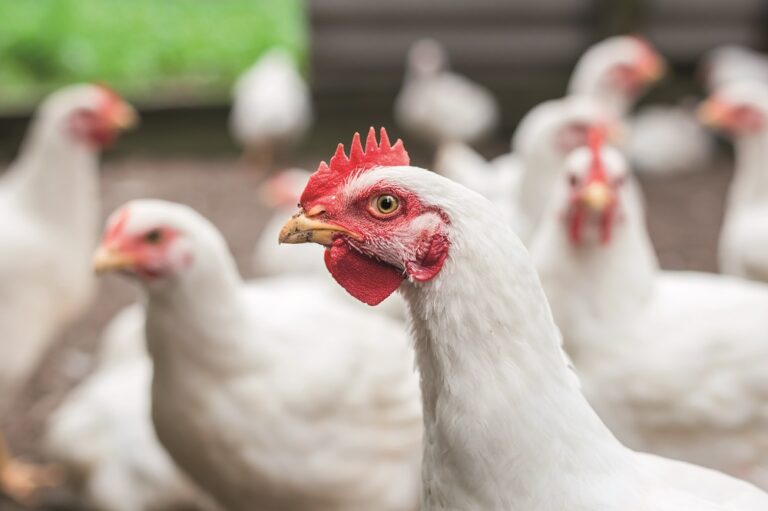More firms are coming under pressure to sign up to Compassion In World Farming’s Better Chicken campaign. The NFU says it has serious concerns.
Tesco is the latest big beast of the corporate food world to embrace the Better Chicken Commitment. Although the details are still being finalised by the retailer, Tesco has confirmed it will launch a fresh chicken product range that will be reared with lower stocking densities and using slower growing breeds. The retailer will stock the new indoor-reared lines alongside its current Red Tractor Assured products.
As reported in PB last month, KFC became the first fast food giant to join other major buyers of chicken throughout Europe, including Sodexo, Compass Group, Marks & Spencer, Waitrose and Unilever in putting its name to the scheme.
The Better Chicken Commitment, developed by Compassion In World Farming, has gained significant traction among retailers and foodservice providers across Europe. The move has caused ‘significant concern’ among producers, according to the NFU, which says the campaign has failed to recognise the progress made on welfare in recent years in standard production, and has fuelled a surge of animal right activity, including farm break-ins.
The commitment requires businesses to commit that by 2026 they will exclusively buy chicken from farms that use slower growing breeds such as Hubbard JA757, 787, 957, or 987, Rambler Ranger, Ranger Classic, and Ranger Gold. It means a maximum stocking density of 30kg/m2, more natural light and enrichment such as straw bales and the use of controlled atmospheric stunning.
But the NFU says the campaign is placing significant pressure on the poultry sector and while it rightly calls for the industry to continuously scrutinise and improve standards, it does not recognise the advancements in poultry farming and fails to reflect on the latest scientific evidences. The NFU points out that poultry meat farms in the UK implement stocking densities that are far lower than the EU requirements, antibiotic use has declined by over 80% in the past six years in the poultry meat sector thanks to the support of responsible use principles which encourage the farmers and their vets to refine, replace and reduce antibiotics on farm, and advancements in genetics have resulted in bird health improvements.
It suggests that campaigns such as the Better Chicken commitment may have helped inspire a surge in farm break-ins and undercover reporting. Improved management, shed and equipment design, and diets that match the bird’s needs have all resulted in improved liveability, improved growth rates and continuous improvement in welfare measure outcomes, factors the campaign doesn’t appear to acknowledge, the NFU adds.
Breeding programmes over many years have also helped significantly by selecting genetic lines showing improved leg and health traits, says the NFU. In combination this has resulted in a healthier bird particularly compared to the breeds from 10 years ago where leg integrity was a challenge. The fact that birds use less feed to grow results in a lower carbon footprint – again something that is a key benefit to consumers and wider society. For the consumer these improvements have meant that poultry meat, produced to consistently high health standards, is affordable on most budgets. Much is made of the density of birds in poultry sheds. The NFU says some people still believe broiler chickens are kept in cages.
UK domestic legislation sets limits on stocking density lower than that allowed for under EU legislation. Many European competitors will be stocking at 42 kg/m² whereas in the UK producers’ stock at 38 kg/ m². Over 90% of the UK industry is operating to these standards under the Red Tractor scheme. The NFU has consistently maintained that animal husbandry and stockmanship that are the greatest factors determining animal health and welfare, not farm size nor system of production. However, it appears momentum is growing, and with the UK’s biggest retailer embracing the scheme, it seems certain others will follow. As for the impact on producers, time will tell.


